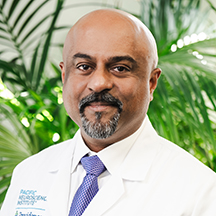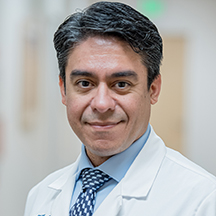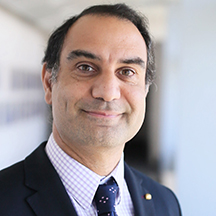
Neuro-Oncology
What is Neuro-Oncology?
Neuro-oncology is a specialized field of medicine that focuses on the diagnosis, treatment, and management of tumors that affect the central nervous system (CNS), which includes the brain, spinal cord, and surrounding structures. These tumors can be benign (non-cancerous) or malignant (cancerous), and they can arise from different types of cells within the CNS.
The field of neuro-oncology encompasses a multidisciplinary approach involving neurologists, neurosurgeons, radiation oncologists, medical oncologists, neuro-pathologists, and other healthcare professionals. Collaboration among these specialists is crucial to provide comprehensive care for individuals with brain and spinal cord tumors.
The primary goals of neuro-oncology are to accurately diagnose CNS tumors, develop individualized treatment plans, and optimize patient outcomes. The diagnostic process typically involves a combination of imaging studies, such as magnetic resonance imaging (MRI) or computed tomography (CT) scans, to visualize the tumor and assess its size, location, and involvement of surrounding structures. A biopsy or surgical resection of the tumor may be performed to obtain a tissue sample for histopathological analysis, which helps determine the tumor type, grade, and molecular characteristics.
Immunotherapy, chemotherapy and other neuro-oncology therapies are required for most malignant and aggressive brain tumors
At PNI we have a wide variety of innovative treatments and clinical trials for our patients with such tumors. Aggressive and invasive malignant brain tumors such as glioblastoma, chordoma, and other central nervous system (CNS) malignancies require ongoing treatment after surgery.
While many brain tumors may be removed in their entirety through minimally invasive keyhole surgery, others require additional treatments including chemotherapy, immunotherapy, radiation and/or clinical trial options.
Glioblastoma Treatment
Our neuro-oncology experts work closely with our neurosurgeons to determine the follow up therapy approaches required to treat residual malignancies.
Unfortunately, the prognosis for glioblastoma (GBM) is poor with an average survival of 14 months after diagnosis with standard of care treatments. Our specialists use innovative therapy options whenever possible to prolong life and improve quality of life for patients.
Genomic Brain Tumor Sequencing
Through collaborations with Dr. Dave Hoon at Saint John’s Cancer Institute, we can perform detailed genomic and proteomic analysis on all brain tumors including Next Generation Sequencing, microRNA profiling, and proteomic analyses. We also use advanced methods such as circulating tumor cells and circulating tumor DNA. In addition, we can facilitate sending tumor tissue and blood specimens to other institutions and commercial companies for specific biomarker analysis, whole genome sequencing and to search for specific tumor markers.
Our goal is to characterize the genetic and molecular changes that occur in individual brain tumors, determine which genes are driving these tumors and find out what enables them to become resistant to treatments such as radiation therapy, chemotherapy and immunotherapies.
Neuro-Oncology Approaches
Standard of Care
We follow established protocols if no other option is available and standard treatments represent the best approach for the patient. For glioblastoma, debulking surgery is followed by whole brain radiation and temazolamide chemotherapy.
Radiation
Whole-brain radiotherapy is used for diffuse or widespread disease, while more targeted radiotherapy is preferred to minimize radiation side effects and preserve brain function.
Individualized Precision Therapy
Each patient’s tumor DNA is tested and the profiled. When the unique molecular characteristics of each patient’s tumor are determined, we can select the most appropriate targeted treatment based on these molecular and genetic abnormalities. This tailoring of treatment to each person gives us the greatest chance of achieving tumor remission and hopefully a cure.
In some instances, what we learn from sequencing a tumor will lead to an established treatment and in others it will lead to clinical trial options.
Advances in precision drugs represent a new way of treatment to help specifically attack tumor cells leading to prolonged lifespan and quality of life for patients.
Therapeutics that qualify to treat glioblastoma through the FDA Orphan Drug Designation program are also considered. The program provides special status to drugs and biologics intended to treat, diagnose or prevent so-called ‘orphan’ diseases that affect fewer than 200,000 people in the U.S.
Immunotherapy
Cancer immunotherapy is treatment that mobilizes the body’s own immune system to fight against cancer. Some immunotherapies are FDA approved while others can provide benefit through clinical trials and other protocols.
Immunotherapies tend to be more precise in targeting cancer cells. They are able to help boost the immune system to be more efficient in attacking the abnormal cells in the body.
Our experts assess each patient for eligibility for immunotherapy options which may be used in combination with other treatments.
Other Approaches
Some newer technologies are also available. Tumor-treating fields (TTFields) devices like Optune and Voyager are cap-like devices that use adhesive patches that are applied to the patient’s scalp. The applied low-intensity electrical fields disrupts the tumor cell division thus slowing or stopping disease progression.
Optune is FDA approved for both newly diagnosed and recurrent GBM.
Clinical Trials
We are committed to finding new treatment options for brain cancer through research and clinical trials. Please review our current clinical trials for the Brain Tumor Center and contact us if you have questions.
For more information about neuro-oncology treatments for brain tumors, please contact our clinic at the numbers listed below or at neuro.oncology@providence.org.
Neuro-Oncology Specialty Team
Neuro-Oncology Clinic Locations
Pacific Neuroscience Institute (Dr. Kesari, Dr. Sharma, Dr. Wagle)
2125 Arizona Ave. Santa Monica, CA 90404
310-582-7600
Providence Saint John’s Health Cancer Center (Dr. Kesari, Dr. Sharma, Dr. Wagle)
2121 Santa Monica Blvd. “Garden Level” Santa Monica, CA 90404
310-829-8265 FAX: 310-582-7287
Providence Little Company of Mary Torrance (Dr. Kesari, Dr. Wagle)
5215 Torrance Blvd. “3rd Floor” Torrance, CA 90503
424-212-5361 FAX: 310-316-3466
Disney Family Cancer Center
Providence Saint Joseph Medical Center (Dr. Wagle)
181 S. Buena Vista St. Burbank, CA 91505
818-748-4999 FAX: 310-582-7495
Providence Saint Jude Medical Center Specialty Clinic (Dr. Kesari, Dr. Carrillo, Dr. Turner)
101 E. Valencia Mesa Dr, Fullerton, CA 92835
714-446-5830 FAX: 714-992-3037
Center for Cancer Prevention Treatment
Providence Saint Joseph Hospital (Dr. Kesari, Dr. Carrillo, Dr. Turner)
1000 W. Stewart Dr. Orange, CA 92868
714-734-6294 FAX: 714-734-6231
Leonard Cancer Institute (Dr. Kesari, Dr. Turner)
27700 Medical Center Rd. Mission Viejo, CA 92691
949-573-9469












